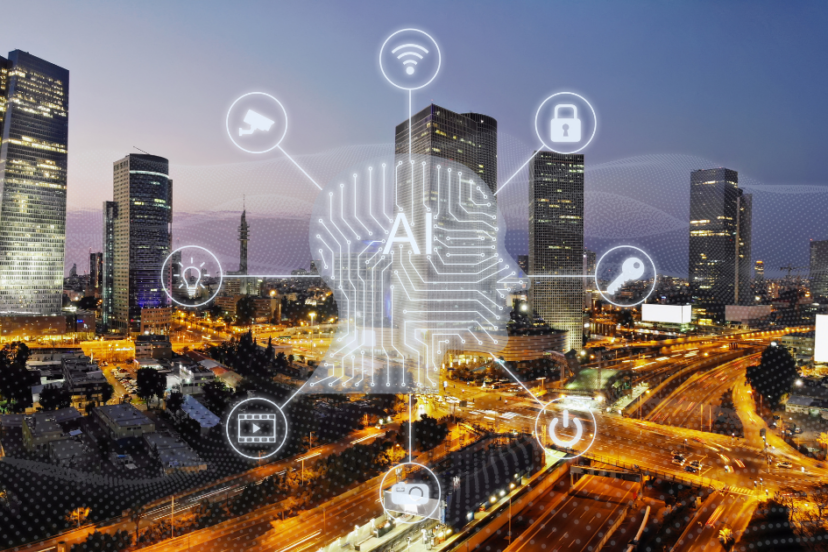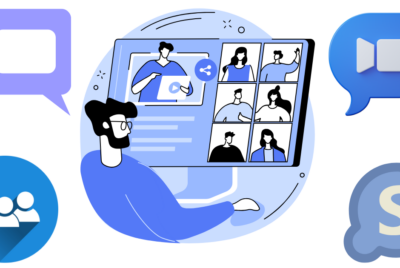How AI Will Reshape Our Future: Transforming the World with AI
AI isn’t just a buzzword; it’s a game-changer. It’s the technology that’s not only shaping our future but also redefining the way we live, work, and interact with the world around us. And the best part? You don’t need to be a tech genius to understand its impact or why it matters. In this blog, we will take you on a journey on how AI will reshape our future.
We’ll show you how it’s already making waves in healthcare, transportation, and education. We’ll discuss the exciting possibilities it brings and the ethical questions it raises. And by the end of it, you’ll have a front-row seat to the AI revolution and a clear understanding of how it will reshape our future.
So, buckle up and get ready to explore the fascinating world of AI – it’s a journey you won’t want to miss!
The Evolution of AI
AI had humble beginnings in the mid-20th century. It all started with a question: Could machines think like humans? This question led to the birth of AI as a concept.
In the early days, progress in AI was slow. Computers lacked the processing power and data necessary for complex learning. Researchers grappled with fundamental challenges like teaching computers to understand natural language or recognize images.
The twenty-first century’s introduction of machine learning and neural networks was a watershed moment. These technologies allowed machines to learn from data, mirroring how humans learn. Suddenly, AI wasn’t just about following predefined rules but adapting and improving over time.
The availability of vast amounts of data from the internet and other sources became the fuel that powered AI. Machines could now analyze enormous datasets, making sense of patterns and correlations impossible for humans to detect.
Within the realm of machine learning, deep learning emerged as a superstar. Inspired by the human brain’s structure, deep neural networks became capable of complex tasks like image recognition, natural language understanding, and even games like Go at a superhuman level.
AI is integrated into our lives in ways we might not even notice. AI is all around us, From smartphone voice assistants to recommendation algorithms on streaming platforms. It’s driving innovations in fields as diverse as healthcare, finance, and entertainment.
How AI Will Reshape Our Future
Let’s take a closer look at how AI is set to reshape various sectors, with a particular focus on its impact on the world of business:
Healthcare
- Personalized Treatment: AI can analyze a patient’s medical history and genetic makeup to create personalized treatment plans. This means more effective treatments with fewer side effects.
- Early Diagnosis: AI algorithms can detect diseases like cancer at their earliest stages, significantly increasing survival rates.
- Drug Discovery: AI can analyze vast datasets to identify potential drug candidates faster than traditional methods.
Finance
- Fraud Detection: AI can spot real-time fraudulent transactions, protecting consumers and financial institutions.
- Investment Decisions: AI-powered algorithms can analyze market trends and make investment decisions faster and more accurately than humans.
- Customer Service: AI-powered chatbots and virtual assistants provide 24/7 customer support, improving user experiences.
- Algorithmic Trading: AI-driven trading algorithms execute transactions at lightning speed, optimizing investment portfolios.
Transportation
- Autonomous Vehicles: Self-driving cars and trucks promise safer and more efficient transportation, reducing accidents caused by human error.
- Traffic Management: AI can optimize traffic flow in real-time, reducing city congestion and fuel consumption.
- Predictive Maintenance: AI can predict when vehicles and infrastructure need maintenance, reducing downtime and improving safety.
Education
- Personalized Learning: AI-driven platforms can adapt to each student’s learning style, ensuring a more effective and engaging education.
- Remote Learning: AI enables immersive virtual classrooms, breaking geographical barriers and increasing access to quality education.
- Administrative Efficiency: AI can automate administrative tasks, allowing educators to focus more on teaching.
Retail
- Customer Recommendations: AI algorithms analyze customer behavior to provide personalized product recommendations, boosting sales.
- Inventory Management: AI optimizes inventory levels, reducing waste and ensuring products are always in stock.
- Visual Search: AI-powered visual search engines allow customers to find products using images, enhancing the shopping experience.
- Supply Chain Optimization: AI predicts demand patterns and optimizes supply chains, reducing costs and improving product availability.
Manufacturing
- Quality Control: AI-driven robots can accurately inspect products for defects, reducing manufacturing errors.
- Supply Chain Optimization: AI can predict supply chain disruptions and optimize logistics for cost efficiency.
- Predictive Maintenance: AI can anticipate when machinery will fail, reducing downtime and maintenance costs.
- Smart Manufacturing: AI-powered systems enable fully automated, data-driven manufacturing processes.
Entertainment
- Content Recommendation: AI suggests movies, music, and books based on user preferences, enhancing entertainment experiences.
- Content Creation: AI can generate music, art, and even write articles and stories, opening up new creative possibilities.
- Gaming: AI can create more realistic and challenging opponents in video games, enhancing gameplay.
Agriculture
- Precision Farming: AI helps farmers optimize crop planting, irrigation, and pesticide use, increasing yields while reducing environmental impact.
- Crop Monitoring: Drones and AI-powered cameras monitor crop health and detect diseases early, preventing crop loss.
- Harvesting Robots: AI-powered robots can precisely pick fruits and vegetables, reducing the need for manual labor.
Business
- Data Analytics: AI can analyze vast amounts of data to uncover valuable insights, aiding in decision-making and strategy development.
- Customer Engagement: AI-powered chatbots and virtual assistants enhance customer interactions, providing personalized support.
- Process Automation: Routine tasks in business operations can be automated, freeing up employees for more strategic roles.
- Market Forecasting: AI can analyze market trends and customer behavior to improve sales forecasts and inventory management.
Conclusion
In conclusion, Artificial Intelligence is like the magic wand of the future, poised to transform every aspect of our lives. From diagnosing diseases earlier to making our commutes smoother, and even personalizing our education, AI is here to stay and revolutionize the way we live and work.
But, like any powerful tool, it comes with responsibilities. We need to ensure AI is used ethically and consider how it impacts our privacy and job landscape.
So, as we step into this exciting AI-driven era, let’s embrace the possibilities, but also keep a watchful eye on how we shape this future. It’s a journey filled with promise and challenges, but together, we can navigate it towards a brighter and more innovative world.
Get ready to welcome the AI revolution with open arms, and let’s see how it will reshape our future for the better!





Comments are closed.